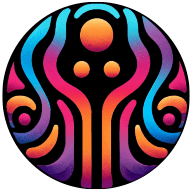In recent years, the use of psychedelics in mental health treatment has sparked a significant amount of interest and debate. This blog post aims to delve into this intriguing subject, exploring the potential benefits, risks, and the ongoing research in this field. We'll examine the historical context, the science behind it, and the potential future of psychedelics in mental health treatment.
Historical Context of Psychedelics
Psychedelics have been part of human culture for thousands of years, used in religious and healing rituals. Modern interest in these substances began in the mid-20th century when scientists started exploring their potential therapeutic uses. However, the widespread recreational use and subsequent cultural backlash led to strict regulations, halting most research.
In recent years, the scientific community has reignited its interest in psychedelics. A resurgence in research is exploring their potential to treat a variety of mental health conditions, including depression, anxiety, and post-traumatic stress disorder (PTSD). This renewed interest is driven by a growing understanding of the brain's plasticity and the potential for psychedelics to induce profound changes in mental states.
The Science Behind Psychedelics
Psychedelics work by interacting with serotonin receptors in the brain, particularly the 5-HT2A receptor. This interaction can lead to altered perceptions, thoughts, and feelings, often described as a 'trip'.
Research suggests that these altered states can disrupt harmful patterns of thought and behavior, allowing individuals to view their experiences from a new perspective. This can be particularly beneficial for those struggling with mental health conditions characterized by rigid patterns of thought, such as depression and anxiety.
Psychedelics in Depression Treatment
Depression is a widespread mental health issue, affecting millions worldwide. Traditional treatments, such as antidepressants and psychotherapy, are not effective for everyone.
Research into the use of psychedelics, particularly psilocybin (the active ingredient in 'magic mushrooms'), shows promising results. Studies suggest that a single dose, combined with psychotherapy, can lead to significant improvements in depressive symptoms.
Psychedelics in Anxiety and PTSD Treatment
Anxiety disorders and PTSD can be debilitating, with current treatments often providing limited relief. Psychedelics, such as MDMA (commonly known as 'ecstasy'), are showing promise in clinical trials for these conditions.
MDMA-assisted psychotherapy is currently in Phase 3 trials for PTSD, with results indicating that it can significantly reduce symptoms. Similarly, studies on psilocybin and LSD suggest they may be effective in reducing anxiety symptoms.
Risks and Challenges
While the potential benefits of psychedelics are exciting, it's crucial to consider the risks and challenges. These substances can induce intense psychological experiences, which can be distressing.
Moreover, the long-term effects of psychedelic use are not fully understood, and their use outside of a controlled setting can lead to harmful behaviors. There are also legal and regulatory challenges to overcome before these treatments can become widely available.
The Future of Psychedelics in Mental Health Treatment
The future of psychedelics in mental health treatment is promising, yet uncertain. As research progresses, we are likely to gain a better understanding of their potential benefits and risks.
It's possible that in the future, psychedelics could become a standard part of mental health treatment, used alongside other therapies. However, this will require changes in regulations, public perception, and medical practice.
Psychedelics: A New Horizon in Mental Health Therapy
The use of psychedelics in mental health treatment is a rapidly evolving field, offering new hope for those struggling with mental health conditions. While challenges remain, the potential benefits of these substances are undeniable. As we continue to explore this intriguing area, we may find that psychedelics hold the key to innovative and effective mental health treatments.

